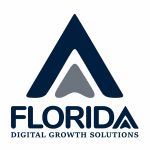You must’ve asked yourself about “on-page SEO for attorneys,” given the digital drive in the legal landscape. On-page SEO is a technique of optimizing individual web pages to improve a website’s search engine rankings, increase visibility, and attract quality traffic.
In the competitive law market, SEO for attorneys is essential in amplifying online presence, enhancing client acquisition, and driving higher growth rates.
Every attorney needs a robust online presence on search engines. It enables potential clients to find you more easily, thereby increasing your chance of lead conversion. For attorneys, a well-implemented SEO can make all the difference in their business’s prosperity and obscurity.
Consider the queries “divorce lawyer near me” or “personal injury attorney in Florida”; the websites appearing on the first page of search engine results reap the maximum benefit of such searches.
Think of the massive potential of having your legal service prominently visible to a client searching for the exact service you offer in their area. SEO for attorneys involves optimizing your website using relevant keywords, producing valuable content, improving your website’s design, speed, and more.
A well-optimized website is more likely to appear higher in search engine results. This visibility immensely increases your firm’s chances of being seen by potential clients and translates to increased client acquisition.
A well-optimized legal website tends to be viewed as more reliable and professional by users. This perception can significantly boost your firm’s credibility, encouraging more users to engage with your site and convert into clients.
SEO for attorneys lets you target your site to the audience most likely to need your legal services, based on location, demographic, and the type of legal guidance they sought.
Here are some critical on-page SEO elements you need to focus on to optimize your legal website:
Ensure your website content is optimized with relevant keywords that potential clients are likely to use when searching for lawyers. This includes meta descriptions, titles, headers, and content.
These are the brief descriptions of your web pages that appear on search engine results. They should be succinct but contain relevant keywords to maximize SEO effectiveness.
A good URL should be short and descriptive, with the main keyword preferably included.
Legal websites need to have high-quality, engaging content that provides useful and specific information to visitors. The content needs to be updated consistently to maintain search ranking.
Let’s break down the process of creating SEO-verified content on your legal website:
Find the legal industry-specific keywords your potential clients are using. Use tools like Google Keyword Planner or SEMrush for the same.
Create informative content that integrates your chosen keywords naturally. Remember, your content has to cater to real people, not just search engine algorithms.
Incorporate your main keyword in your title tag, meta description, H1, H2 tags, etc. This relevance could drastically improve your web pages’ search engine ranking.
Use clean and descriptive URLs with keywords where appropriate.
Fast loading times can significantly improve your website’s bounce rate and subsequently, its search engine rankings.
With increased internet browsing from mobile devices, ensure your website is mobile-friendly.
A website with SSL protection ensures data security, improving its trustworthiness, and its search engine ranking.
Carry out regular audits to identify and resolve any issues with your website.
Learn More: Local SEO in Florida: How to Boost Your Visibility
Having grasped the essentials of on-page SEO, legal firms need to either get their hands dirty and start doing these things themselves or hire professionals like Florida Digital Growth Solutions to do what they do best. SEO for attorneys might seem complex, but by using this guide, any law firm can start making significant strides in improving their online presence and visibility.

Key West | Daytona Beach | Sarasota | Tampa | Cape Coral | Fort Myers | Fort Lauderdale | West Palm Beach | Naples | Orlando | Miami | Hialeah